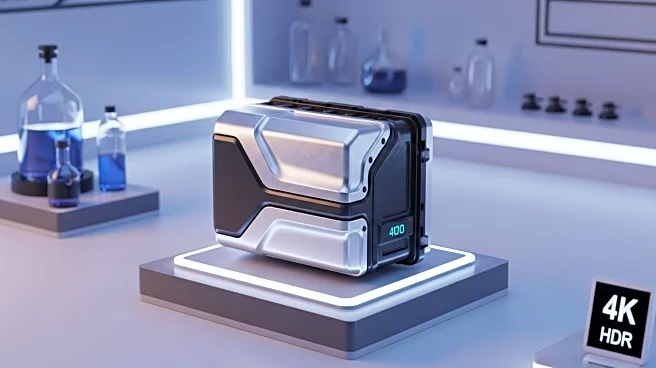What is the story about?
What's Happening?
Stellantis, the parent company of Chrysler, has announced the development of its Intelligent Battery Integrated System (IBIS), a new technology designed to enhance the efficiency and performance of electric vehicles (EVs). Co-developed with Saft, Sherpa Engineering, Université Paris-Saclay, and Institut Lafayette, the IBIS system integrates charger and inverter functions directly into the battery pack. This integration reduces design complexity, saves interior space, and simplifies maintenance. The technology also facilitates the reuse of EV batteries in second-life battery energy storage systems (BESS) applications, minimizing the need for costly reconditioning. According to Ned Curic, Chief Engineering and Technology Officer at Stellantis, the innovation aims to deliver lighter, more efficient, and cost-effective EVs to consumers.
Why It's Important?
The introduction of Stellantis' IBIS technology represents a significant advancement in the EV industry, potentially setting a new standard for battery efficiency and vehicle design. By improving energy efficiency by up to 10% and power gain by 15%, the technology could lead to more affordable and accessible electric vehicles. The reduction in vehicle weight and charging time further enhances the appeal of EVs, addressing common consumer concerns about range and convenience. Additionally, the ability to reuse batteries in stationary applications supports sustainability efforts and reduces environmental impact, aligning with global trends towards renewable energy and resource conservation.
What's Next?
Stellantis plans to integrate the IBIS technology into its electric and hybrid production vehicles by the end of the decade. The first fully functional IBIS-equipped battery electric vehicle (BEV) has been installed in the Peugeot E-3008 electric crossover, marking a significant milestone in the technology's development. As the company continues to refine and test the system, it is expected to pave the way for broader adoption across Stellantis' vehicle lineup. The success of this technology could influence other automakers to explore similar innovations, potentially accelerating the transition to more efficient and sustainable transportation solutions.















